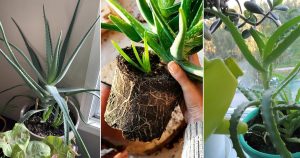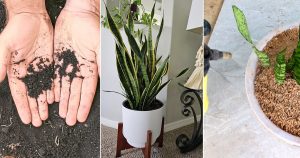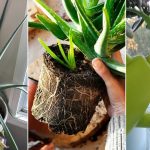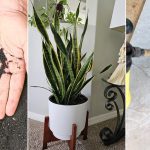Can rabbits eat succulents? Save your garden from ruin while protecting these cute, hungry critters from poisonous succulents, with this article!
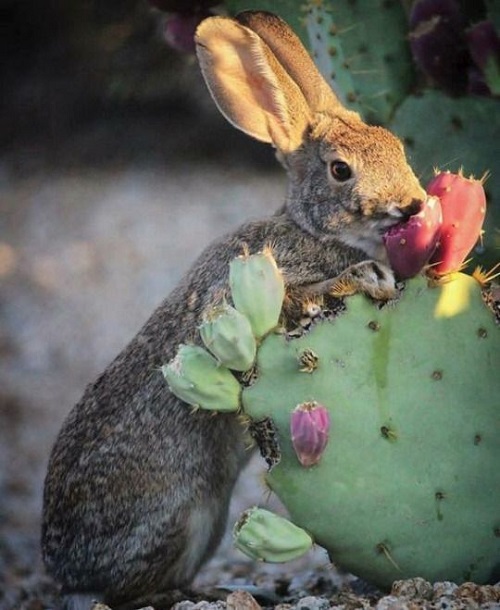
If you’re curious whether rabbits eat succulents, and are safe for them, don’t panic! We have all your answers, including what to do if your unsuspecting little furry friend gets poisoned. Keep reading!
Do Rabbits Eat Succulents?
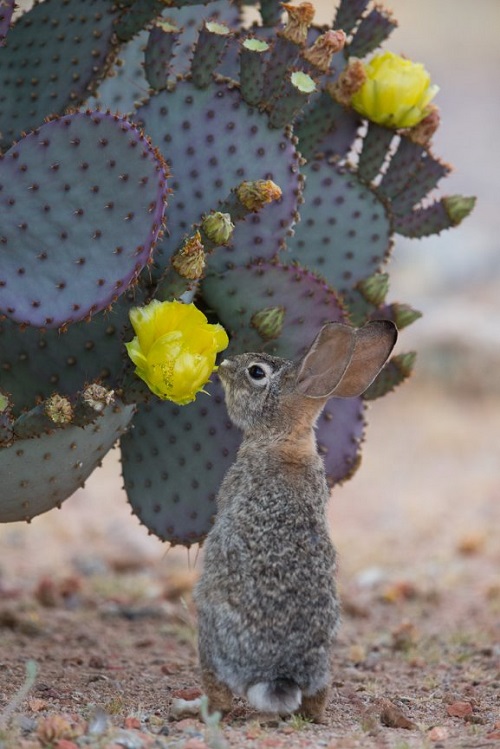
Bunnies usually avoid eating succulents or other plants that might be bad for them, instinctively. But sometimes, they might nibble out of curiosity, which can surprise them because it’s hard to tell which plants are toxic.
Some succulents have toxins that can upset their stomachs, while others have oxalates or saponins that are harmful if eaten. If bunnies often visit your garden, it’s safest to get rid of these harmful succulents. Instead, plant non-toxic species that won’t disrupt their eating habits.
Are Succulents Poisonous to Rabbits?
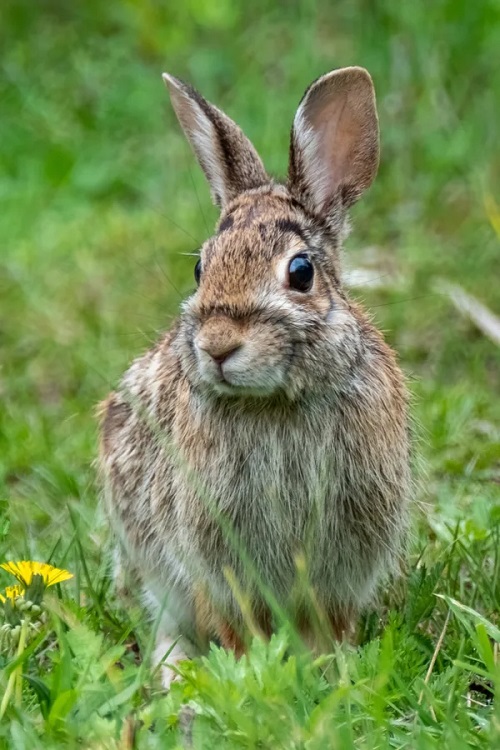
Some succulents are toxic to rabbits. However, not all succulents pose a risk, and some may be safe too. Before planting these varieties in your garden, make sure you are aware of their potential toxicity to bunnies.
Here’s a list of succulents that could harm your rabbit. Additionally, many ornamental plants like tulip, daffodil, and sago palm can also be toxic to your bunny.
- Euphorbia spp.: All its species are risky due to their poisonous sap, which can cause stomach troubles and skin issues.
- Kalanchoe spp.: This plant can affect your rabbit’s heart and cause digestive issues.
- Tillandsia spp. (Air Plants): They have high silica content which can be bad for your rabbit’s liver.
- Cactaceae spp. (Cactus): The spikes and poison can lead to digestive upset and skin problems.
- Aloe vera: Contains aloin, which can upset your rabbit’s stomach and cause diarrhea.
- Zamioculcas zamiifolia (ZZ Plant): This plant can cause digestive trouble and skin irritation.
- Sansevieria trifasciata (Snake Plant): Contains saponins that can lead to stomach issues and diarrhea.
- Adenium spp.: Can cause stomach problems and skin irritation for rabbits.
- Yucca spp.: Contains saponins that can upset your rabbit’s stomach and cause diarrhea.
- Digitalis spp. (Foxglove): Affects your rabbit’s heart and stomach and can irritate the skin.
- Nerium oleander (Oleander): Can affect the heart, stomach, and skin of your rabbit.
- Rhododendron spp.: Causes digestive upset and skin irritation.
- Convallaria majalis (Lily of the Valley): Affects heart rhythm, stomach, and skin.
- Cycas revoluta (Sago Palm): Can harm your rabbit’s liver and cause stomach trouble.
- Tulipa spp. (Tulip): Can cause stomach issues and skin problems.
- Chrysanthemum spp.: Leads to stomach issues and skin irritation.
- Narcissus spp. (Daffodil): Can cause stomach upset and skin problems.
- Hyacinthus spp. (Hyacinth): Causes digestive problems and skin irritation.
- Iris spp.: Can upset the stomach and irritate the skin.
- Rhododendron spp. (Azalea): Leads to gastrointestinal upset and skin irritation.
- Echeveria ‘Chocolate Soldier’: Contains oxalates that can cause digestive upset and skin irritation.
- Alocasia spp. (Elephant’s Ear): Toxic due to oxalates, leading to stomach and skin issues.
- Philodendron spp.: Has oxalates that can cause stomach and skin problems.
- Dieffenbachia spp.: Contains oxalates that can upset your rabbit’s stomach and irritate the skin.
- Euphorbia spp. (Spurges): Their sap can cause stomach issues and skin irritation.
Which Succulents Won’t Harm Rabbits?
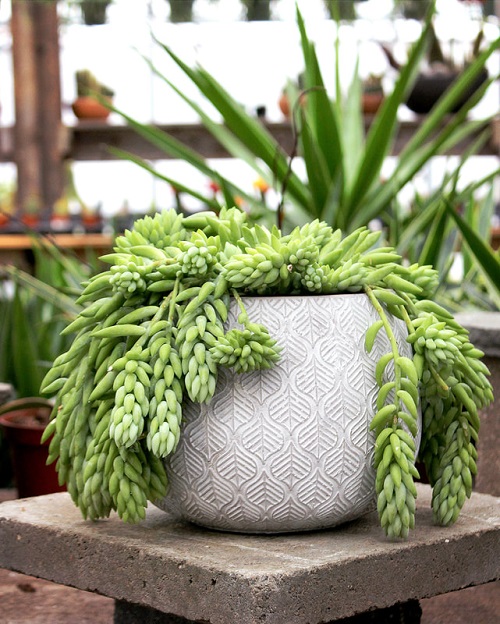
Wondering which succulents won’t harm your bunny? Well, there are a few green beauties you can trust to keep your rabbits safe. Plants like Burro’s tail, Stonecrop, Zebra Haworthia, Blue Echeveria, Ponytail Palm, Star cactus have passed the rabbit taste test with flying colors that it won’t harm your rabbit as they are nontoxic to rabbits.
What to Do if Your Rabbit Ate Succulent?
There are some quick fixes if your rabbit ate succulent. Firstly, check if the plant could be harmful to your furry friend. If it’s toxic, don’t delay—reach out to your vet right away. But, if the plant is nontoxic, give your bunny a lot of fresh water to stay hydrated.
You can create a quiet space for your bunny away from noisy pets and loud sounds. Plus, if your rabbit is willing to eat, offer plain hay or a small amount of their usual pellets.
You might also want to offer some tasty veggies to keep them happy and healthy. Keep a close watch for any signs of illness. But, still if you’re worried, call your vet for advice.
Symptoms of Rabbit Poisoning
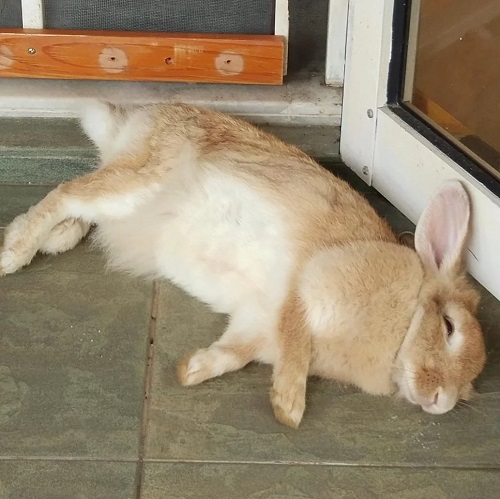
Concerned to think that how you can recognise your bunny might have eaten something bad? So, have a glance on below signs:
- Changes in poop: If your rabbit’s poop looks different or softer than usual, it could mean trouble.
- Lethargy: Is your normally energetic bunny suddenly uninterested in playing? That’s a red flag.
- Loss of appetite: Notice your bunny isn’t eating like normal or losing weight? Act fast and consult your vet.
- Blood in feces: Seeing blood in your rabbit’s poop is a serious sign that needs immediate attention.
- Vomiting: Like humans, rabbits can vomit when their stomach isn’t right. If it happens, it’s important to act fast.
- Breathing issues: Difficulty breathing or any unusual discharge from the nose or mouth could indicate a respiratory problem.
- Seizures: If your bunny has a seizure, it’s crucial to seek veterinary care immediately.
- Strange behavior: Any unusual actions, like suddenly avoiding you or acting differently, could indicate a problem.
Protecting Your Garden from Wild Rabbits
To keep wild rabbits out of your garden, put up a rabbit-proof fence. Use natural or commercial repellents to keep them away from your plants.
Plant things rabbits don’t like, such as lavender and rosemary. Cover delicate plants with netting to stop rabbits from eating them. So, these are some steps that will help protect your garden from wild rabbits.
Conclusion
This article helps you learn which succulents and plants can harm rabbits, the signs of poisoning, and what to do if it happens. Knowing these risks can keep your rabbits safe and healthy.
If you have tips, experiences, or suggestions? Please share them in the comments to help other rabbit owners, too!

